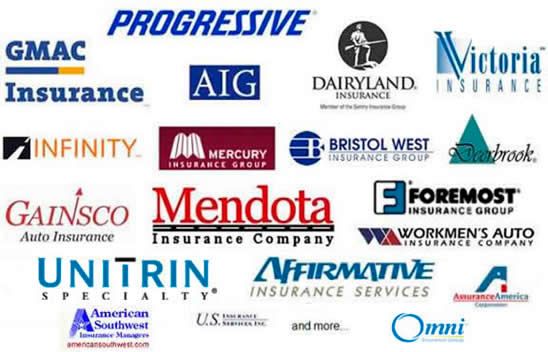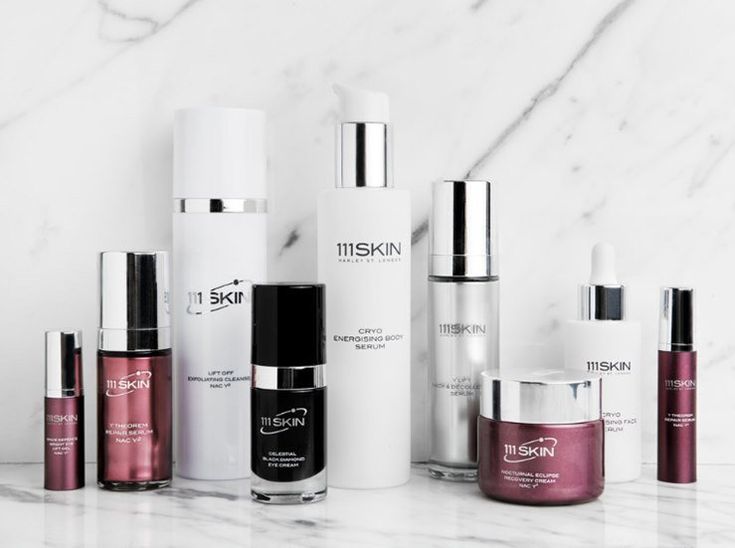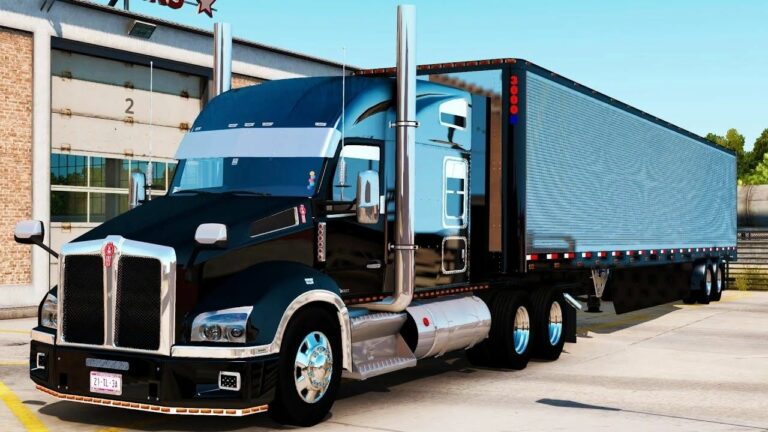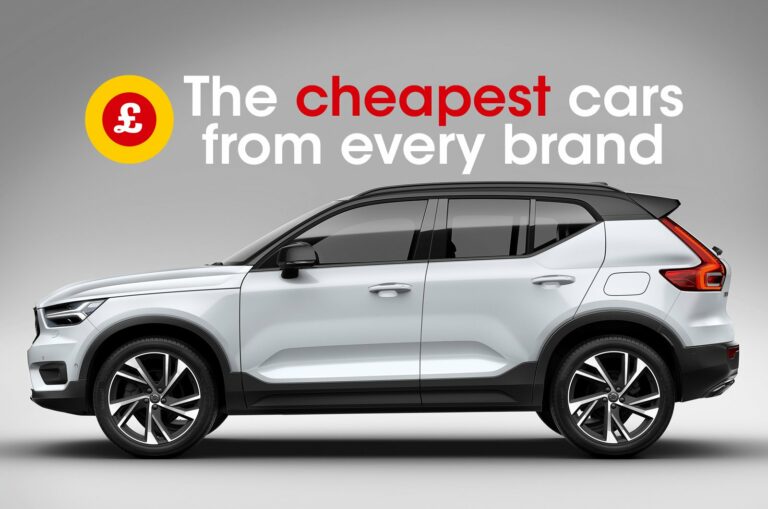What’s The Best Car Brand In The World? Unraveling the Ultimate Automotive Choice
What’s The Best Car Brand In The World? Unraveling the Ultimate Automotive Choice cars.truckstrend.com
The question, "What’s The Best Car Brand In The World?" is a perennial topic of debate among automotive enthusiasts, consumers, and industry experts alike. It’s a question that, despite its simplicity, hides a complex web of factors, personal preferences, and evolving market dynamics. There isn’t a single, universally agreed-upon answer because "best" is inherently subjective, shifting based on individual needs, priorities, and what one values most in a vehicle. Is it unparalleled luxury, bulletproof reliability, blistering performance, cutting-edge technology, or perhaps exceptional value for money? This comprehensive article will delve into the multifaceted criteria that define excellence in the automotive industry, exploring the top contenders across various categories and guiding you through the process of determining what constitutes "the best" for you.
The Elusive Definition of "Best": Criteria for Evaluation
What’s The Best Car Brand In The World? Unraveling the Ultimate Automotive Choice
To understand "What’s The Best Car Brand In The World," we must first deconstruct the term "best." No single brand excels in every single metric, and the automotive landscape is far too diverse for a one-size-fits-all answer. Instead, we evaluate brands based on a composite of critical attributes:
- Reliability & Durability: This is often the cornerstone for many consumers. Brands renowned for reliability offer peace of mind, lower maintenance costs over time, and excellent longevity. They build vehicles that consistently start, run smoothly, and require minimal unscheduled repairs.
- Performance & Driving Dynamics: For enthusiasts, "best" might mean exhilarating acceleration, precise handling, and a genuinely engaging driving experience. This category includes everything from sports cars to performance-tuned sedans and SUVs.
- Luxury & Prestige: These brands offer unparalleled comfort, exquisite craftsmanship, premium materials, advanced infotainment, and a strong sense of exclusivity and status. The focus here is on the opulent experience and the brand’s heritage.
- Innovation & Technology: The automotive world is rapidly evolving. Brands leading in innovation introduce groundbreaking safety features, advanced driver-assistance systems (ADAS), revolutionary electric powertrains, and seamless connectivity options.
- Value for Money: For many, "best" means getting the most features, reliability, and quality for their budget. This considers not just the purchase price but also fuel efficiency, insurance costs, maintenance, and strong resale value.
- Safety: A non-negotiable for many families and safety-conscious drivers, this criterion evaluates crash test ratings, structural integrity, and the breadth and effectiveness of active and passive safety features.
- Environmental Responsibility: With increasing awareness of climate change, brands committed to sustainability, fuel efficiency, and a robust lineup of electric vehicles (EVs) are gaining favor.
- Customer Satisfaction & Service: Beyond the vehicle itself, the overall ownership experience, including dealership service, warranty coverage, and responsiveness to customer needs, plays a significant role.

Contenders for the Crown: Top Brands Across Categories
While no single brand can claim the undisputed title of "What’s The Best Car Brand In The World," several brands consistently rank at the top within specific categories, offering compelling arguments for their excellence.
Reliability Kings: Toyota, Lexus, Honda, Mazda
When the discussion turns to dependability, Toyota and its luxury arm, Lexus, almost invariably lead the pack. Their engineering philosophy prioritizes longevity and robust components, resulting in vehicles that regularly top reliability surveys by J.D. Power, Consumer Reports, and others. Honda is another strong contender, known for its well-engineered engines and durable vehicles. Mazda has also recently risen in reliability rankings, offering a blend of dependability and engaging driving dynamics. These brands appeal to practical consumers who prioritize long-term, trouble-free ownership and excellent resale values.
Performance Powerhouses: Porsche, BMW, Mercedes-Benz, Ferrari
For those who define "best" by pure driving exhilaration, brands like Porsche stand out. Known for its precision engineering, iconic sports cars (like the 911), and high-performance SUVs, Porsche delivers an unparalleled driving experience. BMW and Mercedes-Benz also offer a formidable range of performance-oriented vehicles, particularly their M and AMG divisions, respectively, blending luxury with potent engines and sharp handling. For the ultimate in speed and exclusivity, Ferrari and Lamborghini remain the benchmarks of hyper-performance.
Luxury Epitomes: Rolls-Royce, Bentley, Mercedes-Benz, BMW, Audi, Lexus
In the realm of ultimate luxury, Rolls-Royce and Bentley reign supreme, offering bespoke craftsmanship, opulent interiors, and a ride quality that insulates occupants from the outside world. They are more than cars; they are statements of unparalleled affluence. Mercedes-Benz, BMW, and Audi (the "German Big Three") dominate the premium mainstream luxury segment, offering sophisticated designs, advanced technology, and a prestigious brand image. Lexus also provides a compelling luxury experience, particularly noted for its refined comfort and exceptional reliability.
Innovation Leaders: Tesla, Mercedes-Benz, Hyundai/Kia
Tesla has undeniably disrupted the automotive industry, spearheading the mass adoption of electric vehicles and pioneering advancements in battery technology, over-the-air software updates, and semi-autonomous driving features like Autopilot. While still maturing in some areas, their impact on innovation is undeniable. Traditional giants like Mercedes-Benz also invest heavily in future technologies, from advanced infotainment systems (MBUX) to sophisticated ADAS and a growing range of electric EQ models. Surprisingly, Hyundai and Kia have emerged as formidable innovators, rapidly adopting cutting-edge technology, bold designs, and a strong push into competitive EV platforms like the E-GMP.
Value Champions: Hyundai, Kia, Mazda, Subaru
For those seeking the most bang for their buck without compromising on quality, Hyundai and Kia have transformed their image, offering stylish designs, generous features, long warranties, and competitive pricing across a wide range of vehicles. Mazda provides a premium feel at a non-premium price, along with excellent driving dynamics and increasing reliability. Subaru offers standard all-wheel-drive, strong safety ratings, and robust vehicles that hold their value well, appealing to adventure-seekers and those in challenging climates.
Safety Innovators: Volvo, Subaru
When safety is paramount, Volvo has long been the industry benchmark, pioneering features like the three-point seatbelt and consistently developing new active and passive safety technologies aimed at preventing accidents and protecting occupants. Subaru also earns high marks for safety, with most of its models consistently receiving top ratings from safety organizations like the IIHS (Insurance Institute for Highway Safety) thanks to its robust EyeSight driver-assist system and solid construction.
How to Choose Your "Best": A Practical Guide
Given the subjective nature of "What’s The Best Car Brand In The World," the most actionable advice is to define your best. Here’s how:
-
Identify Your Priorities: Before you even look at brands, list what matters most to you.
- Budget: What’s your realistic price range for purchase and ongoing ownership (fuel, insurance, maintenance)?
- Lifestyle: Do you need space for a family, off-road capability, cargo room for hobbies, or a fuel-efficient commuter?
- Driving Style: Do you crave performance, a smooth comfortable ride, or a rugged utilitarian vehicle?
- Technology Needs: Are you looking for the latest infotainment, advanced safety features, or a more minimalist approach?
- Environmental Concerns: Is an electric or hybrid vehicle a priority?
-
Research Thoroughly: Once you have your priorities, dive into research.
- Read Expert Reviews: Consult reputable automotive publications and websites.
- Check Consumer Reviews: Sites like Edmunds, Kelley Blue Book, and owner forums offer insights into real-world ownership experiences.
- Compare Specifications: Look at engine options, fuel economy, safety ratings (NHTSA, IIHS), and feature lists.
- Watch Video Reviews: Get a visual sense of the interior, exterior, and driving dynamics.
-
Test Drive Multiple Brands and Models: This is perhaps the most critical step. A car might look perfect on paper but feel wrong behind the wheel. Drive competitors in the same segment to get a feel for their differences. Pay attention to comfort, visibility, handling, acceleration, braking, and user-friendliness of controls.
-
Consider Total Cost of Ownership (TCO): The purchase price is just the beginning.
- Fuel Efficiency: Lower fuel consumption saves money over time.
- Insurance Costs: Some vehicles are more expensive to insure than others.
- Maintenance & Repairs: Research typical maintenance schedules and potential repair costs. Brands with high reliability often have lower long-term maintenance expenses.
- Depreciation & Resale Value: Some brands and models hold their value significantly better than others, which impacts your financial outlay when you sell or trade in.
-
Evaluate Dealership Experience: The relationship with your local dealership is important for service, parts, and warranty claims. Research their reputation for customer service.
Challenges and the Evolving Automotive Landscape
The concept of "What’s The Best Car Brand In The World" is continually shaped by industry shifts:
- Electrification: The rapid transition to electric vehicles is a massive challenge and opportunity. Traditional internal combustion engine (ICE) powerhouses are investing billions in EV platforms, while new EV-only brands (like Rivian and Lucid) are emerging. This shift redefines performance, maintenance, and infrastructure needs.
- Autonomous Driving: The development of self-driving technology is progressing, promising increased safety and convenience but also raising complex ethical and regulatory questions.
- Connectivity: Vehicles are becoming increasingly integrated into our digital lives, offering seamless smartphone integration, over-the-air updates, and subscription services.
- Supply Chain Resilience: Recent global events have highlighted the fragility of automotive supply chains, impacting production and vehicle availability.
- Sustainability: Beyond EVs, the industry faces pressure to adopt more sustainable manufacturing processes, use recycled materials, and reduce the environmental footprint of the entire vehicle lifecycle.
These challenges mean that "the best" brand must be agile, adaptable, and forward-thinking, ready to innovate and meet future consumer demands.
Practical Advice and Actionable Insights
- Don’t Chase a Mythical "Best": There isn’t a single car brand that is objectively superior in every single aspect for every single person.
- Define Your "Best": Your ideal car brand is the one that best aligns with your specific needs, budget, and lifestyle priorities.
- Look Beyond the Badge: While brand reputation is important, focus on the specific model and its features. A "best" brand might have a model that isn’t right for you, and a less-heralded brand might have a perfect fit.
- Consider Total Cost of Ownership: Always factor in fuel, insurance, maintenance, and depreciation when evaluating a purchase. A cheaper car upfront might be more expensive to own long-term.
- Future-Proof Your Purchase: If environmental concerns or technological advancements are important to you, consider vehicles with strong EV or hybrid options, or those with robust infotainment and safety tech that will remain relevant for years.
Table: Key Attributes of Leading Car Brands
To provide a structured overview, here’s a general comparison of leading car brands across various categories that contribute to the debate of "What’s The Best Car Brand In The World."
| Brand Category | Example Brands | Key Strengths | Typical Target Audience |
|---|---|---|---|
| Reliability & Value | Toyota, Honda, Mazda, Subaru, Kia, Hyundai | Durability, Low Maintenance, High Resale Value, Practicality | Practical, Budget-Conscious, Long-term Owners, Families |
| Luxury & Prestige | Mercedes-Benz, BMW, Audi, Lexus, Volvo | Comfort, Premium Materials, Advanced Tech, Brand Image | Status-Seekers, Comfort-Focused, Tech Enthusiasts, Executives |
| Ultra-Luxury | Rolls-Royce, Bentley, Maybach | Bespoke Craftsmanship, Exclusivity, Unparalleled Opulence | Ultra-High Net Worth Individuals, Connoisseurs |
| Performance & Sport | Porsche, BMW M, Mercedes-AMG, Ferrari, Lamborghini | Speed, Handling, Driving Dynamics, Motorsports Heritage | Enthusiasts, Adrenaline Seekers, Collectors |
| Innovation & EVs | Tesla, Mercedes-Benz EQ, Hyundai/Kia EV, Lucid, Rivian | Cutting-Edge Technology, Electric Powertrains, Software Integration | Early Adopters, Tech-Savvy, Eco-Conscious |
| Safety Focused | Volvo, Subaru | Advanced Safety Features, High Crash Test Ratings, Driver-Assist | Family-Oriented, Safety-Conscious, Commuters |
| Off-Road/Utility | Jeep, Land Rover, Toyota (4Runner/Tacoma) | Ruggedness, Off-Road Capability, Durability | Adventurers, Outdoor Enthusiasts, Utility Needs |
Note: This table provides general characteristics. Specific models within each brand can vary widely.
Frequently Asked Questions (FAQ)
Q1: Is there a single "best" car brand in the world?
A1: No, there is no single "best" car brand. "Best" is subjective and depends entirely on an individual’s priorities, needs, and budget. What’s best for one person (e.g., a luxury sedan for commuting) might be completely unsuitable for another (e.g., a rugged SUV for off-roading).
Q2: Which car brand is considered the most reliable?
A2: Based on numerous independent surveys (like those from J.D. Power and Consumer Reports), Toyota and its luxury division Lexus consistently rank as the most reliable car brands. Honda and Mazda also frequently appear near the top of reliability charts.
Q3: Which car brand is best for luxury and prestige?
A3: For ultimate luxury and prestige, Rolls-Royce and Bentley are at the pinnacle. For premium luxury that combines performance and technology, Mercedes-Benz, BMW, Audi, and Lexus are top contenders.
Q4: Which car brand is best for performance?
A4: Porsche is widely regarded for its exceptional blend of performance and daily drivability. Other top performance brands include Ferrari, Lamborghini, and the high-performance divisions of BMW (M series) and Mercedes-Benz (AMG series).
Q5: What factors should I consider when choosing a car brand?
A5: Key factors include reliability, performance, safety features, luxury and comfort, innovation and technology (especially EVs), value for money (purchase price, running costs, resale value), your specific lifestyle needs, and your budget.
Q6: Are electric car brands better than traditional ones?
A6: "Better" depends on your priorities. Electric car brands like Tesla offer instant torque, lower running costs (electricity vs. fuel), reduced emissions, and cutting-edge technology. However, they may have higher upfront costs, require charging infrastructure, and can have range limitations. Traditional brands offer a wider variety of vehicle types and established service networks. Many traditional brands are now offering excellent EVs as well.
Q7: How important is resale value when choosing a car brand?
A7: Resale value is very important for the total cost of ownership. A car that holds its value well will cost you less in depreciation over time, which is the difference between what you pay for it and what you sell it for. Brands known for reliability (e.g., Toyota, Honda, Subaru) often have strong resale values.
Conclusion
The quest for "What’s The Best Car Brand In The World" is less about finding a singular champion and more about understanding the diverse landscape of automotive excellence. From the unyielding reliability of Toyota to the exhilarating performance of Porsche, the opulent luxury of Mercedes-Benz, and the disruptive innovation of Tesla, each brand carves out its niche by excelling in specific areas. The ultimate "best" car brand is not a universal truth, but rather a personal discovery. By thoroughly evaluating your own needs, researching diligently across various criteria, and experiencing vehicles firsthand through test drives, you can confidently navigate the vast automotive market and identify the brand that truly aligns with your definition of excellence. In the end, the best car brand in the world is the one that best serves you.





